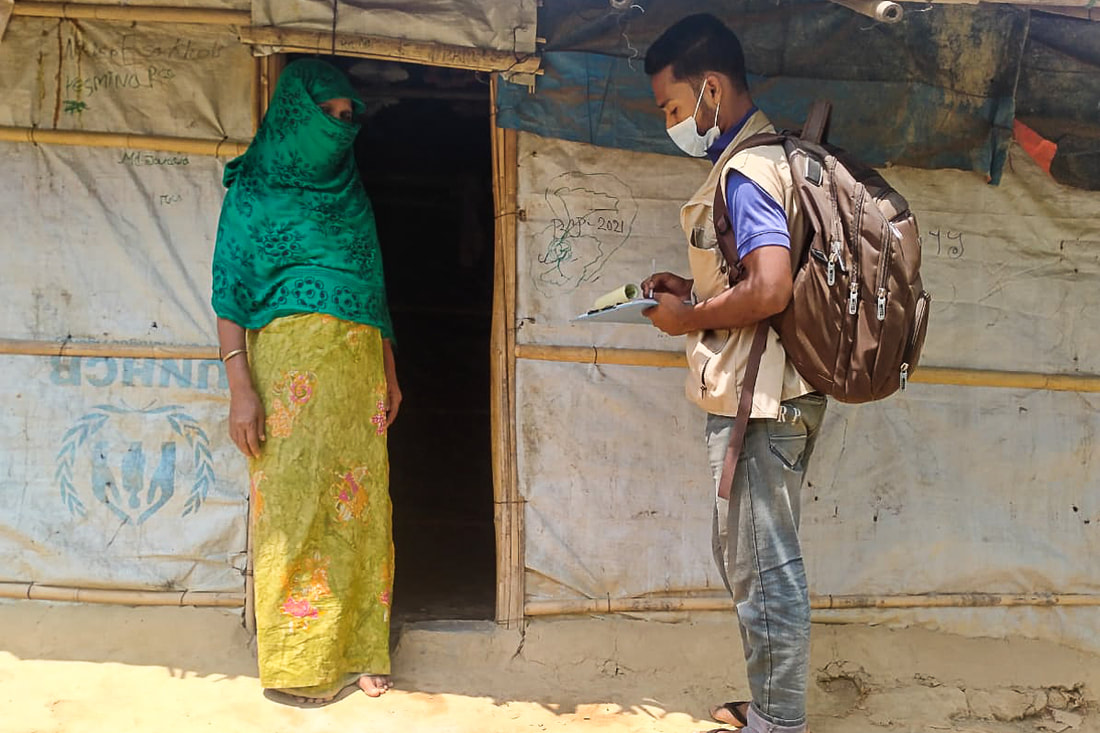"I didn’t understand what a vaccine was. I just heard that they can leave permanent marks on the skin and cause fever." Tasmin, 24, pregnant mother of two children Tasmin’s perception of vaccines is fairly common among her fellow Rohingya refugees in Kutupalong, Bangladesh, the world’s largest refugee camp. With limited access to accurate health information, misunderstandings and false rumors can travel rapidly within the community. Tasmin is a 24-year-old mother of two, pregnant with her third child. Her husband recently abandoned her, leaving her as the sole carer. Much of her day is spent caring for her children. She has to walk long distances to collect food rations and drinking water. Struggling to make ends meet, Tasmin rarely has time to consider her own health, or that of her unborn child.
Monjur Alom, a Rohingya community volunteer trained and supported by Community Partners International and Green Hill, regularly visits Tasmin to provide assistance. Monjur counsels her about health care during pregnancy and, in particular, provides guidance about vaccination. "Monjur explained how vaccines help to fight diseases. After listening to him, I decided that I would vaccinate myself and my baby," explains Tasmin. Monjur accompanied Tasmin to the vaccination center and helped her to successfully complete the course of vaccinations. Now she is protected from deadly diseases like diphtheria and tetanus. She is also aware of the vaccination plan for her unborn child during the first six months of life. Monjur is happy that his work has a positive impact on community health but he and his fellow volunteers face some challenges. “For cultural reasons, some pregnant women here are reluctant to be vaccinated by male vaccinators and, occasionally, there are not enough vaccines available to meet the needs," he explains. "Some neighborhoods are far from the vaccination centers and it can be difficult for pregnant women and women with young children to reach them. These challenges can make it more difficult but we do our best to ensure that all pregnant mothers and children can access vaccination." The work of volunteers like Monjur Alom is crucial to building an understanding of and confidence in vaccination and safeguarding the health of Rohingya refugees and wider society in Bangladesh, especially during the COVID-19 pandemic. Comments are closed.
|
AuthorCPI Admin Archives
July 2024
Categories
All
|
|
|
COMMUNITY PARTNERS INTERNATIONAL
580 California St Fl 16, Ste 1658, San Francisco, CA 94104-1068, USA [email protected] +1 510 225 9676 We are a registered nonprofit 501(c)(3) Public Charity. TAX ID 94-3375666 |
©
Community Partners International


 RSS Feed
RSS Feed
